8 Best Shotgun Ammo For Home Defense
In fact, over the years I’ve become a bit obsessive about finding the right combinations of shotguns, ammo, chokes, optics, etc. I also dedicated a lot of time to studying, shooting, and documenting my results. So, I can now wholeheartedly dig into the world of the best defensive buckshot loads on the market and share my thoughts with you. I’m not just going to hit you with a list of the best ammo for home defense, but I plan to teach you how to effectively use a shotgun for protecting your home. By the end of this, you’ll understand all the ins and outs of shotgun ammo, and you’ll be confident in choosing the best ammo for home defense to meet your personal needs.
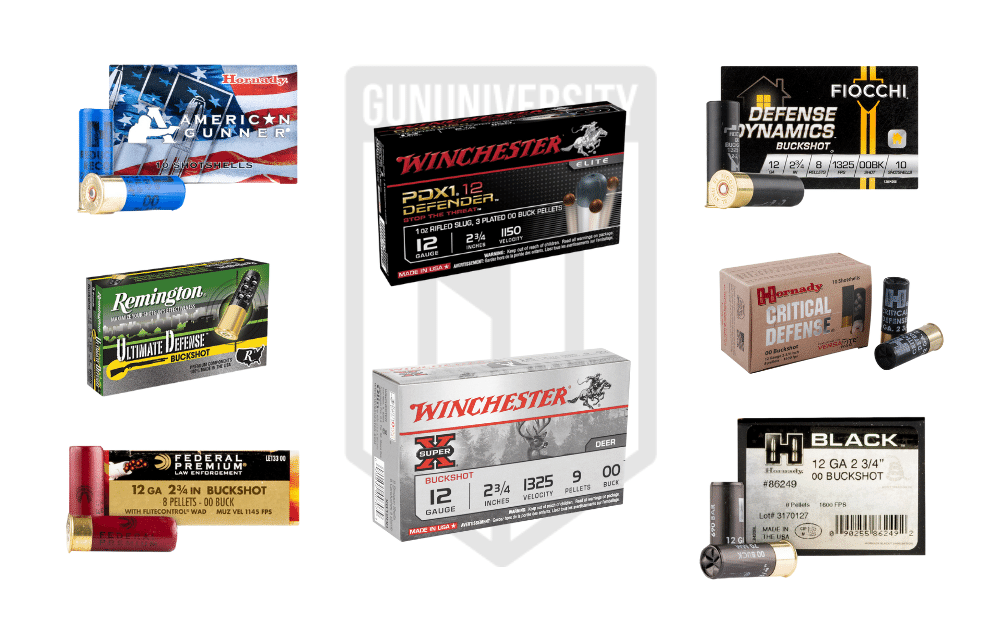
How I Chose the Best Shotgun Ammo for Home Defense
Having spent over a decade shooting and living in a community where shotguns are commonly used for self-defense, I know what shotgun ammo works best for different situations.
But I wanted to make this list truly comprehensive and well-rounded, so I reached out to my friends who are gun professionals. They know their stuff when it comes to guns, gear, and self-defense, but they each have their own preferences. Their collective insights helped me put together this list of the best shotgun ammo for home defense.
Now, I know that picking the right ammo is personal. It depends on what feels right for you and what fits your situation best. Remember, what works for me might not work for you. Keeping that in mind, I made this list in a way that has something for everyone’s needs.
If you want to jump straight to my list of Best Shotgun Ammo, here it is;
- Federal FliteControl 8 Pellet Reduced Recoil – Author’s Choice
- Hornady American Gunner 00 Buckshot
- Hornady Black/Critical Defense
- Fiocchi Defense Dynamics 00 Buckshot
- Winchester Super-X No.1 Buckshot
- Winchester PDX1 Defender
- Remington Ultimate Defense No. 3 Buckshot
- Hornady Critical Defense .410
Before we dive into the detailed review of shotgun ammunition, let’s check out the different types of shotgun loads and calibers. This will provide a better understanding of shotgun ammunition overall, helping you choose the right one for your needs.
The Many Types of Shotgun Ammo For Home Defense
First, shotgun ammo isn’t as simple as other types of ammo. You can’t just grab the same ammo for every situation or pick a Jacketed Hollow Point (JHP) and move on. This is primarily because shotguns come in three main shot types: buckshot, slugs, and birdshot, each with its own subcategories.
Buckshot
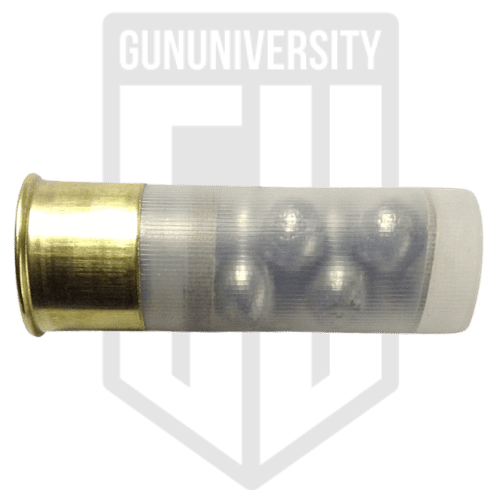
The most effective round for home defense in a shotgun is buckshot. Buckshot penetrates deep, hits hard, and hits with a multitude of projectiles per trigger pull. Buckshot varies wildly in size between the smallest, No.4, and the largest 000 shot. These numbers coordinate with the size of each projectile.
The smallest, No. 4, contains .24 caliber pellets, and 000 uses .36 caliber pellets. In between, we get several shot sizes with various-sized pellets.
When it comes to buckshot, we have two that stand out.
The first is 00 buckshot, it fires .33 caliber pellets. It’s the most popular choice, featuring purpose-built tactical loads. The 00 buckshot penetrates deeply and delivers hefty loads of lead, which makes it the best for defensive shooting.
The second is, the #1 buckshot and it fires .30 caliber pellets. Its slightly smaller size allows for more pellets per shell. While it may be harder to find and lacks purpose-built tactical loads, it offers reliable penetration and ultimately provides more lead per shot compared to 00 buckshot.
Slugs

Slugs are a solid piece of lead that easily weighs an ounce. This massive, single projectile smashes into and through targets. In most shotgun calibers, they reach deep enough to hit the vitals. Slugs extend the effective range of shotguns, but that’s not needed in a home defense scenario.
Slugs can be effective for home defense, but it cannot create multiple wound cavities like buckshot does at close range. They also over-penetrate, especially if they hit a thinner part of the body. If you choose to use a shotgun slug, go with a segmented or expanding slug designed for tactical applications.
Birdshot
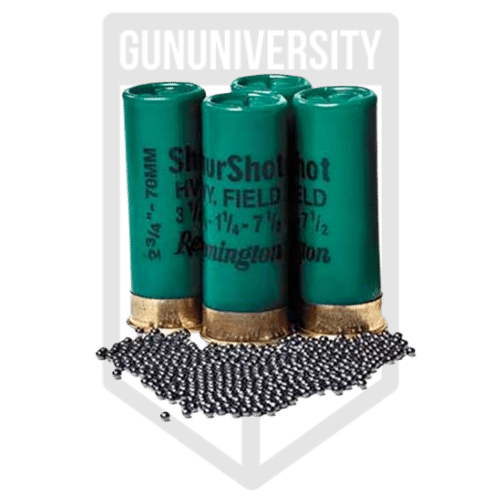
What about birdshot? The name says it all – it’s meant for birds, not home defense. Birdshot lacks the ability to penetrate the human body deeply enough to reliably stop a threat. Unless your threat is birds and you’re in the Crows Have Eyes 2.
I’m not saying birdshot is harmless or can’t stop a threat, but using it for home defense is a gamble. Even birdshot designed for big birds isn’t ideal for defense. It’s made for birds after all.
People often use birdshot thinking it’s safer as it won’t penetrate walls. But if you’re worried about missing, the answer isn’t birdshot, it’s more training.
What about No. 4?

Many suggest No. 4 buckshot for home defense due to its smaller pellets as they are less likely to penetrate walls should you miss. Even though they penetrate fewer walls, they can still break through 8 drywall pieces. Yep, that’s less than 00 or No. 1, but it’s not this miracle round people make it out to be.
No. 4 Buckshot can sometimes penetrate deep enough to stop a threat, meeting the 12-inch standard in ballistic gel. But it’s not always consistent.
No. 4 buckshot is often used for varmint hunting and is great for taking coyotes and similar animals on the run. There aren’t any dedicated tactical loads with No. 4 buckshot, and the loads are typically designed to spread quickly to make hitting moving targets easier. However, in a home defense scenario, you’ll want to avoid a wide spread to reduce the risk of stray pellets flying through your home and hitting unintended targets.
Defensive Shotgun Calibers
In the United States, there are three major shotgun calibers that dominate the market. We have 12, 20, and 410. Calibers like 16 and 10 gauge are certainly viable but are a bit uncommon and not worth diving too deep into.
12 gauge – 12 gauge is the best and most popular defensive shotgun option. It provides the right balance of power and recoil and shotgun size. 12 gauge is the choice of military and police forces. Most defensive shotgun loads are designed around the 12 gauge loading.
20 Gauge – 20 gauge can work well for home defense and provides a lightweight alternative with lighter recoil than the 12 gauge. While it works, finding defensive 20 gauge loads, fighting shotguns, and accessories can be tricky.
What About .410? – .410 is the only shotgun load I know that is not measured in gauge. It’s the smallest shotgun caliber and is equivalent to 67 gauge. It’s super small, and a shotgun chambering it is quite lightweight. They also barely recoil, but they also tend to be pitiful ballistically, and the small size reduces the number of pellets in a .410 load.
.410 can stop a threat, but it’s far from optimum. If .410 is the only round a shooter can chamber, then the shooter will be better served with a semi-auto rifle or PCC.
The Best Shotgun Ammo for Home Defense
Below I have 8 picks for the best shotgun ammo for self-defense. I go over my favorite choice, best budget loads, most efficient, best slug for home defense, and more. Check out my list below and some options of where you can pick these loads up.
Editors Choice – Federal FliteControl 8 Pellet Reduced Recoil
The king of kings for defensive buckshot is the Federal FliteControl 8 pellet reduced recoil buckshot load. Federal uses a specially designed wad that is known as the FliteControl wad. This shot cup embraces the pellets until they leave the barrel of the gun.
This ensures you get a superbly tight pattern. At ten yards, it’s one large hole in the target. At 15 yards, it’s still tight enough to cover with your palm. The eight-pellet load eliminates something known as the 9th pellet flyer. Nine pellet shotgun loads will have the occasional errant pellet that strikes far outside the pattern.
This load extends your effective range and gives you a very capable option for home defense. Recoil is hardly an issue, and this load ensures you maintain control over your firearm in a fight. FliteControl gives you the hands-down best defensive shotgun load on the market. It’s my load of choice.
 | See Price |
Hornady American Gunner 00 Buckshot
Coming in at a close second is the Hornady American Gunner load. Hornady does some weird things with their loads and the names of their loads. This used to be their reduced recoil critical defense load, but now it’s called American Gunner. Hornady uses a wad similar to Flitecontrol known as the Versatite wad.
This wad is similar to the FliteControl wad. Even though it doesn’t pattern as tightly, it’s close. With this load, you get a high-performance buckshot option for accurate and threat-ending shots. It’s highly unlikely you’ll have any stray pellets.
This load, with its eight-pellet count and 1,350 FPS velocity, has a bit more kick than most reduced recoil loads, but it’s manageable. If FliteControl isn’t an option, I turn to American Gunner. It’s another reliable choice from Hornady, known for their high-quality ammo.
 | See Price |
Best For Finnicky Semi-Autos – Hornady Black/Critical Defense
My preferred choice of home defense shotgun has always been the semi-autos. I know that some semi-auto shotguns can be finicky and require a certain velocity and dram to function. If that’s the case, you should take a peek at the Hornady Black/Critical Defense loads. Remember how I said Hornady could be annoying?
Well, Black and Critical Defense are the same loads sold under different names. This load does use the Versatile wad but flies out at 1,600 feet per second. It’s fast and full-powered and will ensure your semi-auto shotgun cycles reliably. The Black load patterns are tight and are certainly solid at home defense range.
The Hornady Black and Critical Defense load holds eight 00 pellets, so no 9th pellet flyer problems. The patterns are entirely consistent and hit hard. You’ll be able to easily zero an optic to the pattern and have issues stopping your threat.
So, if you have a finicky semi-auto shotgun, Hornady Black/Critical Defense is the best choice for you.
 | See Price | |
 | See Price |
Best Budget Load – Fiocchi Defense Dynamics 00 Buckshot
When you see the price of some of these loads, it gets expensive, very expensive. Hornady and Federal’s premium loads cost $1.50 apiece on a good day, and it’s not uncommon to see them cost $2.00 a round. Buying a single box is fine, but buying enough to train with, load your gun, and pattern gets pricey.
The Fiocchi Defense Dynamics load costs less than a buck a round, making it the best budget load on my list. It packs a lethal and reliable load. This nine-pellet 00 buckshot load falls into the reduced recoil category. The pattern isn’t going to be as tight as a premium load, but it’s pretty good for a budget load. The recoil isn’t stiff, and the load provides a controllable shot.
The projectiles are hardened lead that resists deformation and ensures accuracy and consistent penetration. While Fiocchi isn’t an American company, these loads are manufactured in the United States.
 | See Price |
Most Efficient – Winchester Super-X No.1 Buckshot
No. 1 buckshot deserves a purpose-built tactical load. Federal used to make one, but it’s sadly been discontinued. However, Winchester’s Super-X stepped up to fill this gap. As the most efficient slug load on my list, it provides a reasonably good home defense load. It’s more or less aimed at hunting, but that doesn’t mean it won’t work for home defense, especially when paired with an improved cylinder choke.
The Super-X No. 1 buckshot load features a high brass load that ensures consistent ejection and unmatched reliability. Winchester uses a hinged wad that provides a consistent and capable, reasonably tight pattern. With a velocity of 1,250 FPS, it’s a low recoil round.
The benefit of using a No.1 load is easy to see. Each pellet of No.1 buckshot weighs 40 grains, and you get 16 pellets in a Super-X load. A normal 00 pellet weighs 53.8 grains, and you get nine of them in a 2.75-inch shell. 16 x 40 = 640 grains of lead and 9 x 53.8 = 484.2. No.1 loads are simply more efficient.
 | See Price |
Best Slug For Home Defense – Winchester PDX1 Defender
While I advise using buckshot for home defense, I wanted to leave what I think is a solid slug load. The Winchester PDX1 Defender slugs are the best for home defense if you want to use slugs. The Winchester PDX1 Defender slugs are well suited for home defense if you want to use slugs. These are segmented slugs designed to break apart when they strike a soft target.
This prevents over-penetration and creates one ounce of lead that rips and tears throughout the body. To be clear, I’m not talking about the PDX1 slug loads that pack three buckshot pellets. Those suck, but the standard PDX1 loads are excellent. These full-powered slugs don’t slack in the recoil department, so be prepared for a little sting.
With that said, they are quite capable and very accurate. Within home defense ranges, these slugs will strike with easy precision. I suggest pairing them with ghost ring sights or an optic to maximize accuracy.
 | See Price |
Best 20 Gauge Defensive Load – Remington Ultimate Defense No. 3 Buckshot
There are very few tactical loads if you want to use a 20 gauge shotgun for home defense. One of the most evident and affordable is the Remington Ultimate Defense load. This load gives you 17 pellets of No.3 buckshot. No.3 buckshot is a load almost entirely exclusive to 20 gauge, and it can consistently penetrate deep enough to stop a threat.
Packing 17 pellets of No.3 into a shell hits hard and offers a lot of lead on target. It’s a weighty load that puts a lot of lead on target and hits hard. This load uses Remington’s managed recoil system and has a velocity of 1145 feet per second. It keeps your 20 gauge shotgun recoiling fairly light and makes it easy to stay on target for repeated rounds.
The 20 gauge isn’t the best option, but it’s still plenty lethal when properly loaded. Per shot, this load delivers over 1,000 foot-pounds of energy on target. That’s not bad for the meager 20-gauge load.
 | See Price |
Best .410 Defensive Load – Hornady Critical Defense
.410 kind of sucks for home defense. It’s a shotgun load so thin it’s best described as cute. However, if you are insistent on using .410 I feel obliged to provide you with a decent load that works effectively in a defensive scenario. The best load I’ve seen is Hornady’s purpose-built Critical Defense load.
This load mixes two 35-caliber buckshot pellets with a 41-caliber FTX slug. The flex tip technology gives you an expanding projectile that hits hard and penetrates deep. Behind it are the two big, heavy 35-caliber pellets that penetrate well and can easily reach an attacker’s vitals.
It’s one of the few .410 loads I’d trust my life to. I’d still suggest a more powerful shotgun, but this load will at least penetrate, expand, and stop the threat with good shot placement.
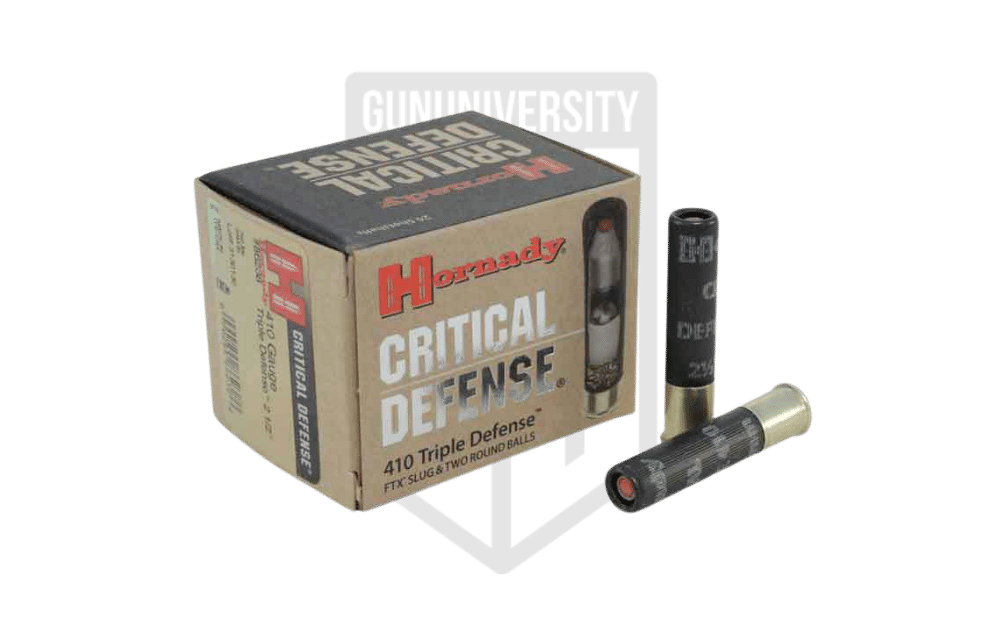 | See Price |
Pattern, Pattern, Pattern
Once you’ve found a buckshot round you like for defense, it’s time to put it to the test through patterning. Patterning involves shooting the buckshot at a target from a set distance and observing the resulting patterns.
Different shotgun loads create different patterns when shot from different shotguns. So, it’s important to test each shotgun with its individual load. Make sure to pattern your defensive shotgun with your chosen defensive load at different ranges.
I’d start at five yards and then seven, and maybe ten. You want to pattern your shotgun for the longest possible shot inside your house. If the shot load patterns excessively and strays off target for a center mass shot, then you might want to try a different load. A tighter pattern is preferable for defensive use.
What About Chokes?
A choke is a device in the barrel that tightens your shot pattern. It comes in different levels of constriction and affects how your shots spread. Common chokes include cylinder, improved cylinder, modified, and full.
Most defensive shotguns have a cylinder bore, meaning the shot pattern isn’t restricted. Shotguns with interchangeable chokes are increasingly popular, even in the tactical world.
For defensive use, an improved cylinder is ideal. Anything tighter can cause pellets to bounce off each other and deform, resulting in less penetration and unpredictable flight paths.
Shell Length
There was a time when shell lengths were pretty standard, but now they range from 1.75 inches to 3.5 inches.
So what’s best for defensive use, you may ask?
Well, if you are using a 20 or 12 gauge, then you should go with the 2.75-inch shell length. The 2.75-inch shells offer the most bang for your buck and balance recoil with a hefty load of lead. They also cycle reliably in repeating shotguns.
With .410 3-inch offers the most buckshot for your bang, but 2.5-inch shells allow you to fit an extra shell in your gun. With .410, you can choose either 2.5 or 3-inch shells.
Three and three and a half-inch shells are designed for hunting, and while they pack more lead, they often pack substantially more recoil as well. They aren’t great for defensive use.
Mini shells don’t pack the same punch as the 2.75-inch shells and don’t cycle reliably in repeating shotguns.
Reduced Recoil Rules
For defense, get familiar with ‘Reduced Recoil.’ It’s a term you’ll appreciate. Reduced recoil loads do a few things. They reduce the recoil, making the gun easier to handle which is important as shotguns are notorious for their kick.
Reduced recoil loads involve lower velocities, and buckshot at lower velocities tends to pattern tighter. I’ve tested two identical loads. One is a 1,250 FPS load, and one is a 1,600 FPS load. The 1,250 FPS load patterned tighter.
Exotic Loads Are a No Go
The unique nature of shotguns and their big, smoothbores means you can essentially shoot anything you shove down them. This attracts a number of silly, albeit fun loads. You can get Dragon’s Breath, which turns your shotgun into a flame thrower, flechette loads that fire a group of darts, or any odd combinations.
These are fun, but don’t replace a good buckshot load with silly exotic loads. Stick with proven defensive loads.
The Scatter Gun
The shotgun is experiencing a bit of a renaissance. It’s always been a powerful tool that’s often nicknamed the repeating claymore for a reason. These heavy-hitters can be an awesome choice for home defense. However, they are only as good as the ammo in them. Choose the right ammo, and you’ll be well prepared to defend what’s yours.
Best Shotgun Ammo for Home Defense FAQs
What is the best type of shotgun ammo for home defense?
For defending your home, buckshot is your go-to choice. It’s all about that deep penetration and hard-hitting power, and nothing does it better than buckshot. Specifically, 00 buckshot is what you want to look for. With its .33 caliber pellets, it packs the punch you need to stop a threat reliably.
What is the recommended gauge for a defensive shotgun?
When it comes to picking out a shotgun for home defense, the 12 gauge is your best bet. It’s popular for a reason – striking that perfect balance between power, recoil, and the availability of ammunition. But hey, if you prefer something with a bit less kick, the 20 gauge can also get the job done, offering lighter recoil while still packing a punch.
Why is patterning important for defensive shotguns?
You want to know how your shotgun load is going to perform when it counts, right? That’s where patterning comes in. By testing your chosen load at different distances, you can see exactly how those pellets spread. A tighter pattern means more pellets hitting the target, which equals better stopping power and fewer stray shots – exactly what you need in a defensive situation.
Can I use shotgun shells interchangeably between different shotgun models?
Yep, you can generally swap shotgun shells between different models, as long as they’re the right gauge and length for your firearm. Just double-check that your shotgun is chambered for the specific shell length and gauge to avoid any hiccups or damage to your firearm.
Are birdshot loads less lethal than buckshot or slugs?
Yes, birdshot is less lethal than buckshot or slugs because of its smaller pellets and less penetrating power. While it can cause significant damage at close range, it often fails to incapacitate a threat quickly, making it a less reliable choice for home defense.
Recent Posts
February 21, 2026
February 21, 2026
February 21, 2026
February 20, 2026

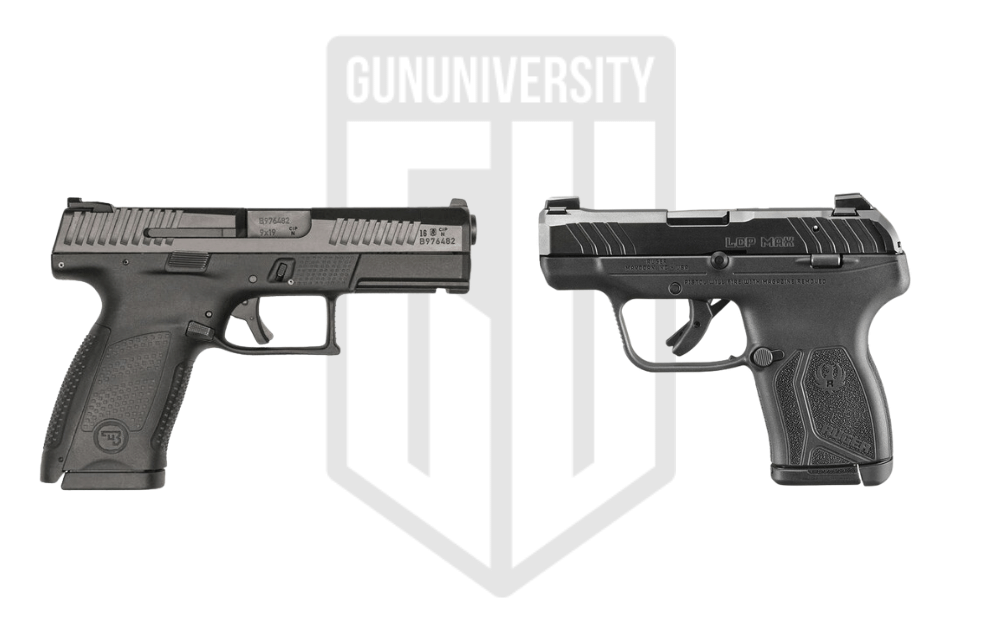
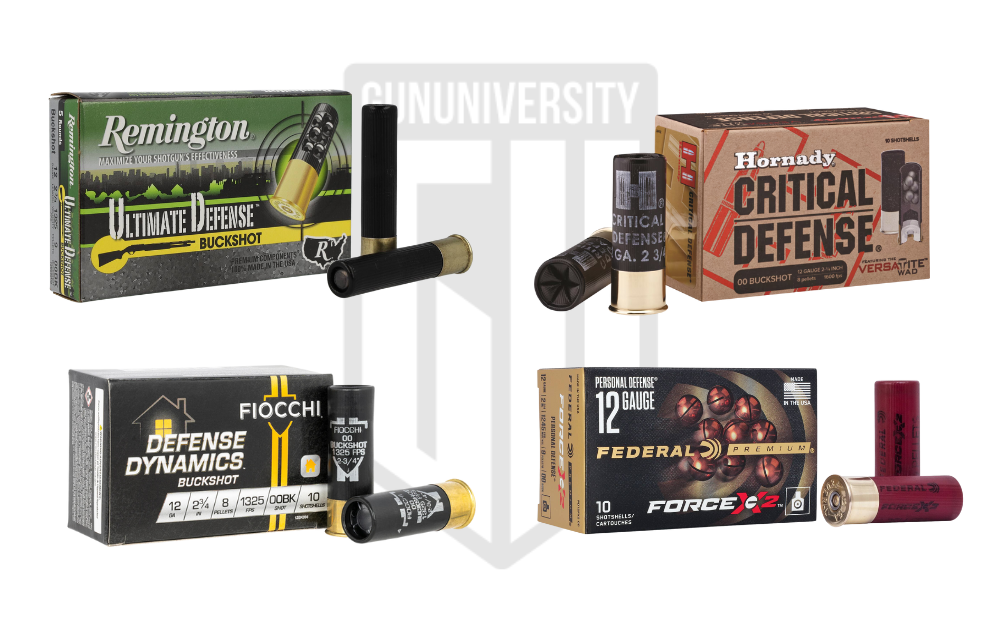
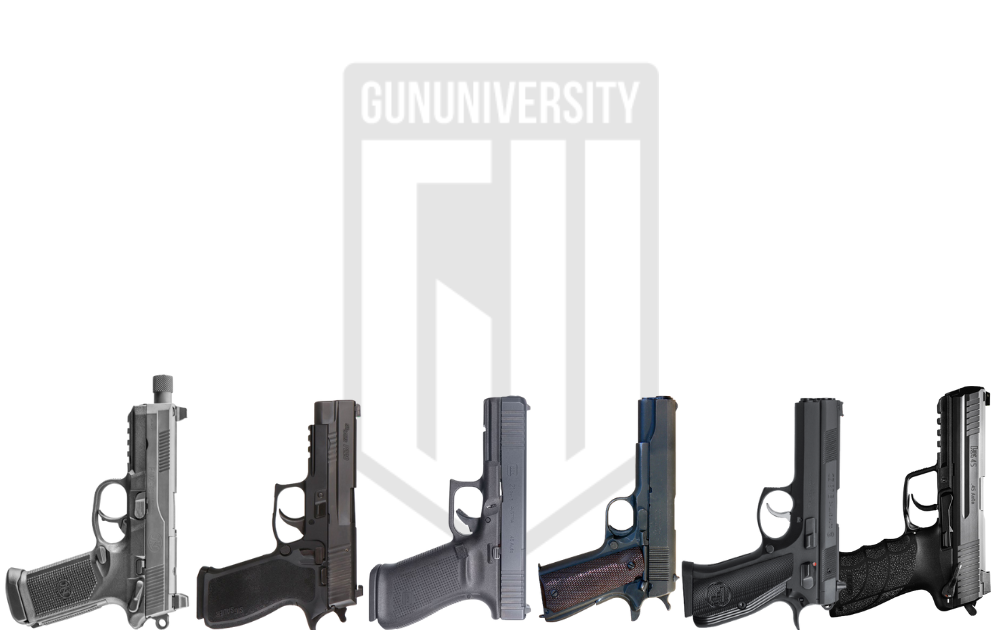

Great column! One thought that may be applicable: When it comes to 9mm defense ammo, most firearms lawyers suggest that we stick with the same ammo that local LEO is using. It just takes one “issue” off the table with the usual preditoary Soros prosecutors.